Darlene Love - Interview
by Lisa Torem
published: 25 / 11 / 2015
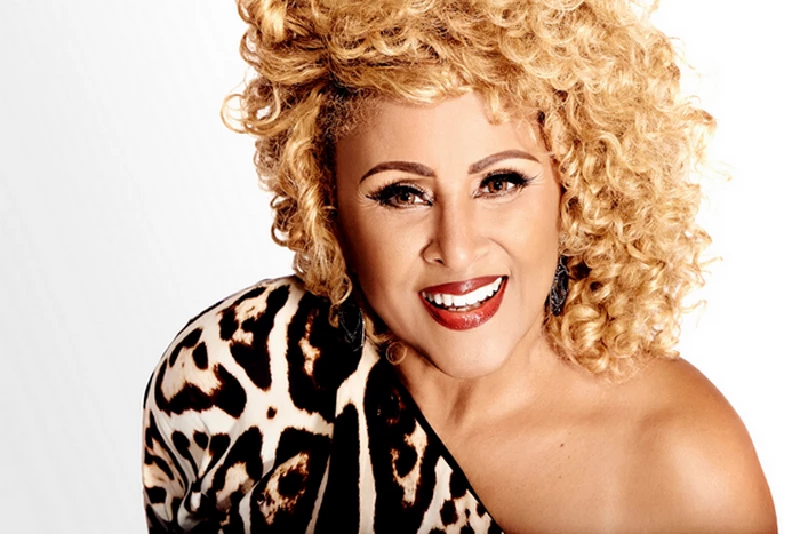
intro
Lisa Torem speaks to 60's soul icon Darlene Love about ‘Introducing Darlene Love’, her new album produced by Steven Van Zandt, plans for filming her memoir and her forthcoming tour.
You can hear Darlene’s deep, evocative voice in songs like Sam Cooke’s ‘Chain Gang,’ Bobby Day’s 1958 hit, ‘Rockin’ Robin’ and in Phil Spector’s 1963 recording of the Ronettes’ ‘Be My Baby’ and, of course, in ‘He’s a Rebel,’ one of the leading anthems of what Spector referred to as “the ‘60s girl group sound.” A proud minister’s daughter, Darlene Love, grew up absorbing the glorious Gospel sounds in her father’s San Antonio Church and spent her other formative years in Los Angeles, California. With the Blossoms, the Crystals, Bob B. Soxx and the Blue Jeans, Darlene Love proved she could sweeten any lead singer’s ballad, but for years she remained an uncredited, yet integral back up singer. During a previous Pennyblackmusic interview in 2011, she talked about being a maid in Beverly Hills. During that time she heard herself on the radio and resolved to get back in the game in a big way. Ms. Love’s comeback dream has come true. Her memoir, 'My Name is Love,’ co-written with New York Times writer/editor, Rob Hoerburger, will be made into a feature film by OWN (Oprah Winfrey Network) in the near future. In 2011, she got inducted into the Rock and Roll Hall of Fame alongside A-listers like Alice Cooper and Neil Diamond. She livened up the holidays for years singing 'Christmas (Baby Please Come Home)' on 'Late Show with Letterman' and wowed audiences with her featured role in the award-winning '20 Feet From Stardom', a documentary which lauded unrecognized back up singers, while celebrating their gifts. She has appeared in all four 'Lethal Weapon' films and in Broadway hits like ‘Hairspray,’ filling New York arenas with her super sized sound. But the biggest news is right now. Steven Van Zandt has produced her new release, ‘Introducing Darlene Love’, which boasts primarily original songs written especially for her. She plans to promote the album with a non-stop North American tour, which finds her booked solid until mid 2016. When I catch up with Ms. Love, she is negotiating with construction workers in her home and has just brought another journalist in the queue up to speed. Despite her busy schedule, she sounds anxious to tell her story once again, with a vibrant and cheerful voice that’s been seasoned with a rare wisdom. PB: It sounds like you’re having a very busy day. DL: (Laughs). It slows down and it picks back up again. PB: I have enjoyed watching the new video of the song, ‘Forbidden Nights’, which appears on ‘Introducing Darlene Love’. How did the cameo appearances come about and, secondly, was there a specific reason you chose the Asbury Park location for the shoot? DL: Steven decided that he wanted it to be a fun video, so he was the one who decided he wanted it to be out at the beach. He wanted it to be a happy-go-lucky time for all of us so we went to New Jersey, to his home, where all his fans are and half of my fans are too. I think they think I was born there so we thought that that would be a great place to do it. Also, the people that we chose — Joan Jett is a very, old, dear, dear friend of mine and Paul Schaeffer is one of the reasons that I’ve been in the media for the last twenty-five years, so we thought we’d ask him to be in it. It’s amazing because everybody that we told about who we were going to ask said, "Oh, they’ll never do it. They just don’t do things like that anymore." Joan Jett’s manager, Kenny Laguna, used to be my manager about twenty years ago, and he said, "No", and they called David Letterman’s manager and he said the same thing, "He’ll never do that. He doesn’t do things like that" and then I asked them to call Bill Murray, because when I did the Academy Award, he was the first one to stand up and give me a standing ovation and the amazing thing about that again I was told "He don’t do things like that" and everybody that they called they all came. And one reason, you know, I never really ask people for favours and they all said yes. PB: So many great songwriters contributed material to the album. How did you narrow down the choices and what kind of studio equipment did you use? DL: We didn’t decide anything. Steven knows my voice. He knows what my voice can take. He knew the accompaniment I needed. Steven has a recording studio and we used his studio. It was about 35 years ago when I first met Steven. He promised me he was going to record me. Time went on and on and on. He was busy and I was busy. Our careers went on in different ways, but we always stayed in touch with each other and Steven said there is never going to be the right time to do this album because he couldn’t get anybody else on board to do it; like a record company —the record companies have gone through so many changes in the last couple of years, so he decided he was going to do it, spend his money and one Christmas about a year ago, I was at B.B. King’s. and he said, "What are you guys doing tomorrow?" and we said, "Nothing. I think we got the day off," and he said, "We’re going into the studio". That was a Saturday night. Monday we’re in the studio, recording a gospel song called ‘Marvelous’ and that’s how it started. He said, "If I have to record one song a month, I’m going to find the time to put this in my schedule so we can go in the studio and do this." He got the best recording people and the best musicians. He went after the songwriters. It took a while, except for Elvis Costello. When he called him, he said, "Yeah, man, we sent four songs right away." We didn’t do all of them, but we did two. It took a while because they wanted to write special songs just for me. Why did it take so long? We had to wait for everybody. He got songs, but he turned down songs and said it wasn’t right for the album. He wanted special themes to go through the album from beginning to end. So we collaborated on the songs, "Yeah, that’s good and no. I don’t think that one is great for me. It doesn’t fit into the theme of what you’re trying to do’. Steven and I handpicked every song. We agreed on all of the songs that were in the album. It was a collaboration of both of us. The theme was all in Steven’s head. It’s like building a house and you don’t have a blueprint but it’s all in your head, what you want it to look like and that’s exactly what Steven did. Everything he had learned all of these years, being with Bruce, doing televisions shows and all those kinds of things he put all of that into this album and I thank him for it (Laughs). PB: You also recorded a few classics, ‘River Deep, Mountain High’ and ‘Sweet Freedom’. DL: I was involved with ‘River Deep’ from the very beginning with Phil Spector, who told me, "I’ve got this song and I want you to learn it." So he gave me the song and said, "I want you to teach it to the singers." So I expected that that was going to be my song. He never said it was. I try to make that really a strong point because people confuse things. He never said this song is for me. He just told me to learn it. I figured if he wanted me to learn it that he wanted to record it with me, but the day we went into the studio, up until the day we recorded that song Tina Turner came in and I said, "I guess it’s not for me." Tina recorded it and I did all of the background parts with the other singers. But I always wanted to record that song and Steven always had a thing about ‘River Deep’— the way that Phil Spector recorded it. It did sound like a wall of sound with no clarity in the music: the horns, the strings, the voices in the background. Even Tina’s voice was kind of muted in the wall of sound, and nothing stood out clearly. Steven wanted to do a real clean version of ‘River Deep’. I was in on this. I said, "Yes, let’s do this." Not that Tina didn’t do a good version, but we wanted to do our take on it. ‘Sweet Freedom’ by Barry Mann and Cynthia Weill - they never released that song but they did it as a play in The Bottom Line called, ‘Just Once’. That song kind of stayed in the back of mind, but I completely forgot about it. When they sent it, I said, "That’s a great song." I wasn’t in that play, but I remembered that song and so that’s the reason why we did that cover. It was never recorded by anybody else. PB: You and Bill Medley did a duet on one of the Elvis Costello tunes. Had you recorded previously with Bill? DL: Gosh, about ten or twelve years ago, we did a duet, ‘(You’re My) Soul and Inspiration’ for the soap opera, 'One Life to Live' and in the television show they wanted to give me and Bill Medley as a gift to the bride and groom, so that’s the song we recorded for them and, actually, we went to the wedding reception and we sang that song together. That was almost like a no-brainer. When Steven first did it, we thought that Elvis Costello was going to sing it with me, but we did a totally different version of it than he does, so Steven came up with the idea of Bill Medley. We had a relationship, so that’s perfect. They sent it to him and he actually did it in another studio in California. We weren’t together when we did it. PB: Who would have guessed? When listening to the album, I didn’t have the list of songwriters near me. I heard ‘Jesus is the Rock’ and assumed it had been written in the 1930s by Thomas Dorsey, the Father of Gospel, or someone else known to have written incredibly expressive Gospel early on in the last century. I was amazed when I saw that contemporary writer, Steven Van Zandt, had captured the spirit so genuinely. DL: If you think about it, there’s a spiritual theme through the whole record. ‘Marvelous’ is a big Gospel song written by Walter Hawkins. Then ‘The Believers’ and ‘Little Liar’ and ‘Just Another Lonely Mile’…all that is like a little spiritual theme throughout and the last song that Steven put on that album was ‘Jesus is the Rock’ and he was up all night writing. We ended up recording that to be the last song of the album. And Steven knows me. He knows my spirituality. He knows my faith and he said, "That was a perfect song to write," and he just wrote that song, knowing how I feel, how my life is. PB: I did recognize Jimmy Webb’s song because of that explosive, orchestral build and you sounded so sincere interpreting the message. Did ‘Who Under Heaven’ also carry a special meaning for you? DL: When Steven called Jimmy Webb and asked him to write a song for me, he said, "What kind of song do you want? What about another ‘MacArthur Park’?" And that’s exactly what he wrote, but the theme was about what’s going on in our world, not just here in America, but all over the world. There are wars and rumours of wars, little pockets of things going on in countries all over the world and that’s what that song is about. For me, it really was: “Who under heaven are we saving this for?” We need something else to be going on. We need help and the only person I know who can help us is God, "Who under Heaven are we saving this for?" Are we saving a world of nothing but war and turmoil for our children? What are we doing here, people? This is a song for the world, almost like, "We are the world. We are the children…" Every time I sing this song, it’s like crying out for help so that’s why that song is so in my heart when I’m singing it and when I recorded 'Not I'. That’s what I was really thinking about. We didn’t tell him to write this song. He just did this little piano part and sent this song to Steven. Then Steven called him and asked, "What’s the melody? You didn’t give me the lyrics or the melody?" He said, "It’s for you. You have to figure it out." In Steven’s mind, this has all been in him for thirty or forty years, all that he has gained for the television show that he does overseas, working with Bruce Springsteen for the last thirty years. All this is in him and it all has come out. He’s given it to me and I say, "Thank you." Nobody really knows what I sound like unless they see me in person. Nobody can see this on the records that I did with Phil Spector. Phil Spector used to do this trick to make my voice sound smaller and more young. He would speed the track up a little bit, but Steven wanted it all to come out. He wanted people to know exactly what I sounded like. When Columbia signed us and took us for the distributing, everything was lined up in perfect time. PB: Michael Des Barres’ ‘Painkiller’ was quite different than the other arrangements. DL: Everyone has been through an emotional thing that has been through a painkiller for them, you know. It almost killed them but it didn’t. What I did with that song in person, I allowed my other singers to sing that with me onstage; let everybody have a verse and they’d sing it just the way they feel and let them think about the verse that they sing. It really goes over really great, better than I thought it would. PB: What’s happening with the film based on your autobiography? DL: We signed a deal with Oprah Winfrey’s Network and like everything else, it takes time and when it’s time for it to come out and for us to do it, we’ll find the right person to play me, the right writers and all of that. I don’t really get upset or worried about things that haven’t been done yet. After it gets done, then I go, "Okay, now it’s time to be creative." I know it’s going to come. When? That’s what I don’t know, but I do feel in my heart it will come. PB: How would you summarise what you learned from the process of writing your book? DL: From the beginning to the end of that book, there were two or three things: I wanted it to be funny, I wanted it to be truthful and I wanted it to be believable and I think I did all of that in that book; things that I had actually seen with my own eyes, not something that somebody else had told me. So that was the main thing. I had a lot of stories and there were a lot of stories I left out that could have made ten books. Like everything else, you have to pick and choose what you’re going to put into the book. PB: How did the collaboration go? DL: Rob Hoerburger helped me write the book. He was a wonderful fan and a writer, and he did a piece on me for 'The New York Times'. He said somebody needs to write a story about this girl. He wrote a three-page story and it was marvellous. I said, "I need to get him to help me write this book, to put things in perspective and chronicled," and that was hard to do. I would start off writing and then I’d jump way over to somewhere else. He put things in order. He really helped me out a great deal with that. PB: If you had to give advice to a young singer starting out, what would you say? DL: They really, really do have to love it. You can’t put a half foot in because there’s too many down times, too many things, barricades, things that come your way when you’re trying to do it. You have to be persistent and you have to believe in yourself. If you don’t, you’re not going to make it, because I’ve been doing this now for over fifty years and, still, I’m just where I want to be right now. It took time, it took patience and persistence and believing in yourself. It’s not going to work otherwise. PB: What are your touring plans to support your new album? DL: We’re really busy right now because my season is coming up, the Christmas season, but since we did the movie, ’20 Feet From Stardom,’ I’ve filled in for all of November and all of December and I’m already starting on next year. I get a little break in the Christmas time, when I say a break, not the music; I get back to doing my favourite songs, my Christmas songs. I put a Christmas show together that I do every year so we’re getting ready to go into rehearsal in a few weeks to put the Christmas show together and then come January we start all over again. I see nothing but good things, favourable shows coming - Europe, is where I want to go, where people have never heard me sing except on record. That’s my desire. In my heart, I really want to go to Europe. I want to go to London more than anything because I have so many fans there and they’re begging me to come. Who’s going to bring me? Make them pay. Tell them they’ve got to get me over there. Everything takes time. I tell people that producers just want to be sure you can put butts in the seat. That’s all they really care about and I don’t want to go there and do a lot of little bitty clubs. If the record is successful, like I really believe it is going to be, it will get me to the masses, where I’m trying to go so people can hear what I sound like today. I’m just so pleased and happy to God that I’m able to do this, physically. When people hear me sing, they say, "My God, where did you get all that from?" and I say, "It’s been in me for a while. I need to get it out." So, that’s what I’m right in the midst of doing right now as I speak. PB: Thank you.
Band Links:-
http://darleneloveworld.com/newalbum/https://en.wikipedia.org/wiki/Darlene_Love
https://www.facebook.com/darleneloveworld
Picture Gallery:-
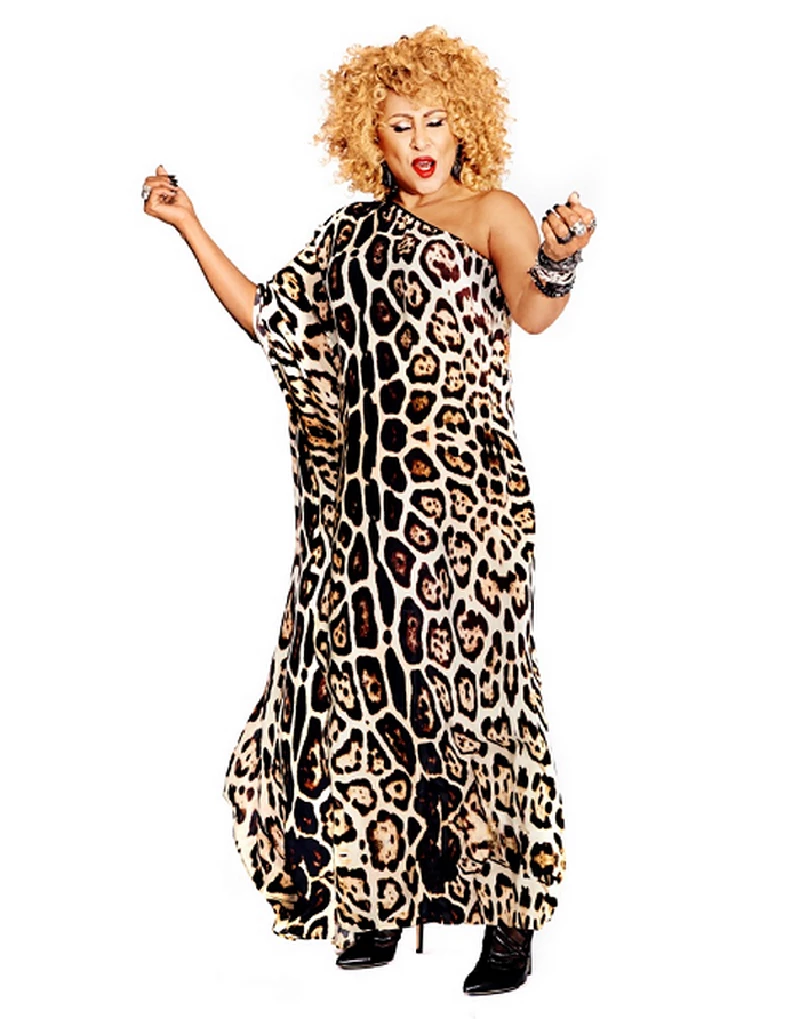
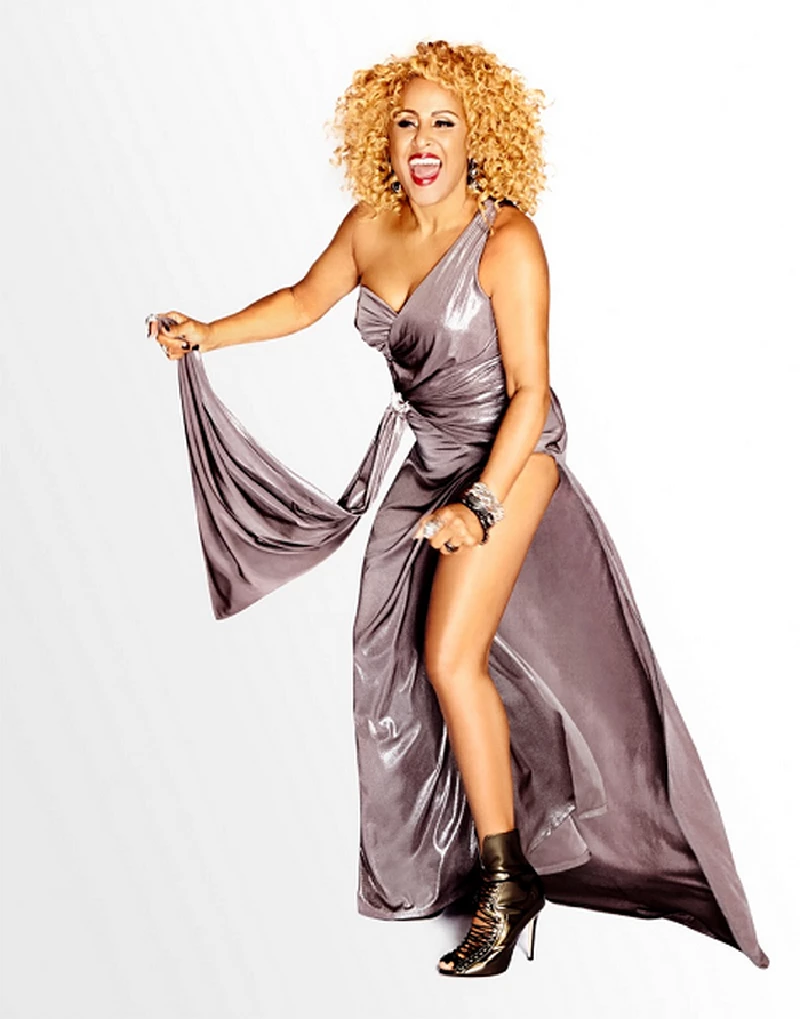
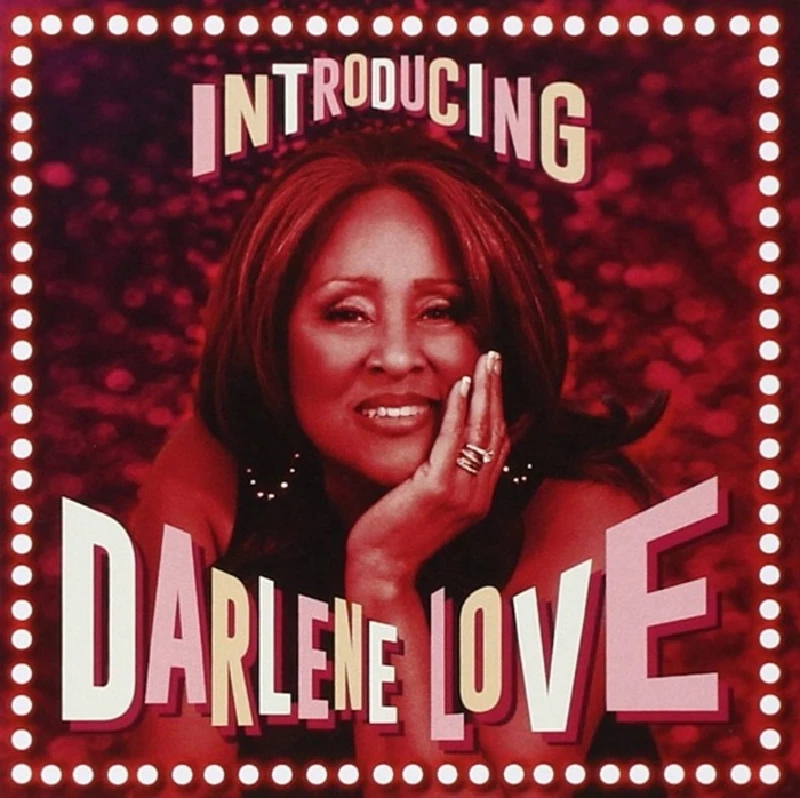
interviews |
|
Interview (2011) |
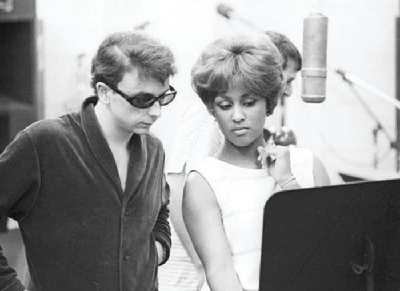
|
| Lisa Torem talks to pop legend Darlene Love about her five decade career and working with Phil Spector |
reviews |
|
Introducing Darlene Love (2015) |
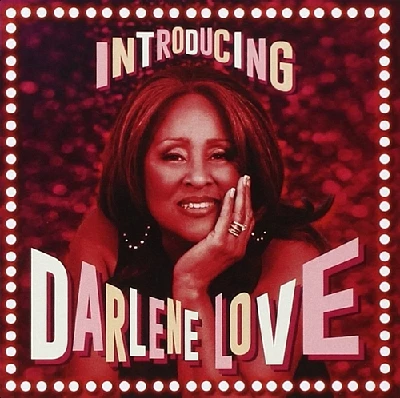
|
| Versatile new album from 60's star Darlene Love which was produced by Steven Van Zandt and features fourteen high-energy tracks written by contemporary and classic songwriters |
| The Sound of Love: The Very Best of Darlene Love (2011) |
most viewed articles
current edition
Carl Ewens - David Bowie 1964 to 1982 On Track: Every Album, Every SongArmory Show - Interview with Richard Jobson
John McKay - Interview
Colin Blunstone - Thalia Hall, Chicago, 16/7/2025
Bathers - Photoscapes 1
Billie Eilish - O2 Arena, London, 10/7/2025
Loft - Interview
Visor Fest - Valencia, Spain, 26/9/2025...27/9/2025
Sir Tim Rice - Interview
Robert Forster - Interview
previous editions
Manic Street Preachers - (Gig of a Lifetime) Millennium Stadium, Cardiff, December 1999Heavenly - P.U.N.K. Girl EP
Beautiful South - Ten Songs That Made Me Love...
Peter Perrett - In Dreams Begin Responsibilities Interview Part One
Boomtown Rats - Ten Songs That Made Me Love....
Oasis - Oasis, Earl's Court, London, 1995
Coldplay - Wembley Arena. London, 16/8/2022
Prolapse - Interview
Trudie Myerscough-Harris - Interview
Pixies - Ten Songs That Made Me Love...
most viewed reviews
current edition
Davey Woodward - Mumbo in the JumboSick Man of Europe - The Sick Man of Europe
Lucy Spraggan - Other Sides of the Moon
Amy Macdonald - Is This What You've Been Waiting For?
Suzanne Vega - Flying With Angels
Blueboy - 2
Bush - I Beat Loneliness
Phew, Erika Kobayashi,, Dieter Moebius - Radium Girls
Alice Cooper - The Revenge of Alice Cooper
Cynthia Erivo - I Forgive You
Pennyblackmusic Regular Contributors
Adrian Janes
Amanda J. Window
Andrew Twambley
Anthony Dhanendran
Benjamin Howarth
Cila Warncke
Daniel Cressey
Darren Aston
Dastardly
Dave Goodwin
Denzil Watson
Dominic B. Simpson
Eoghan Lyng
Fiona Hutchings
Harry Sherriff
Helen Tipping
Jamie Rowland
John Clarkson
Julie Cruickshank
Kimberly Bright
Lisa Torem
Maarten Schiethart